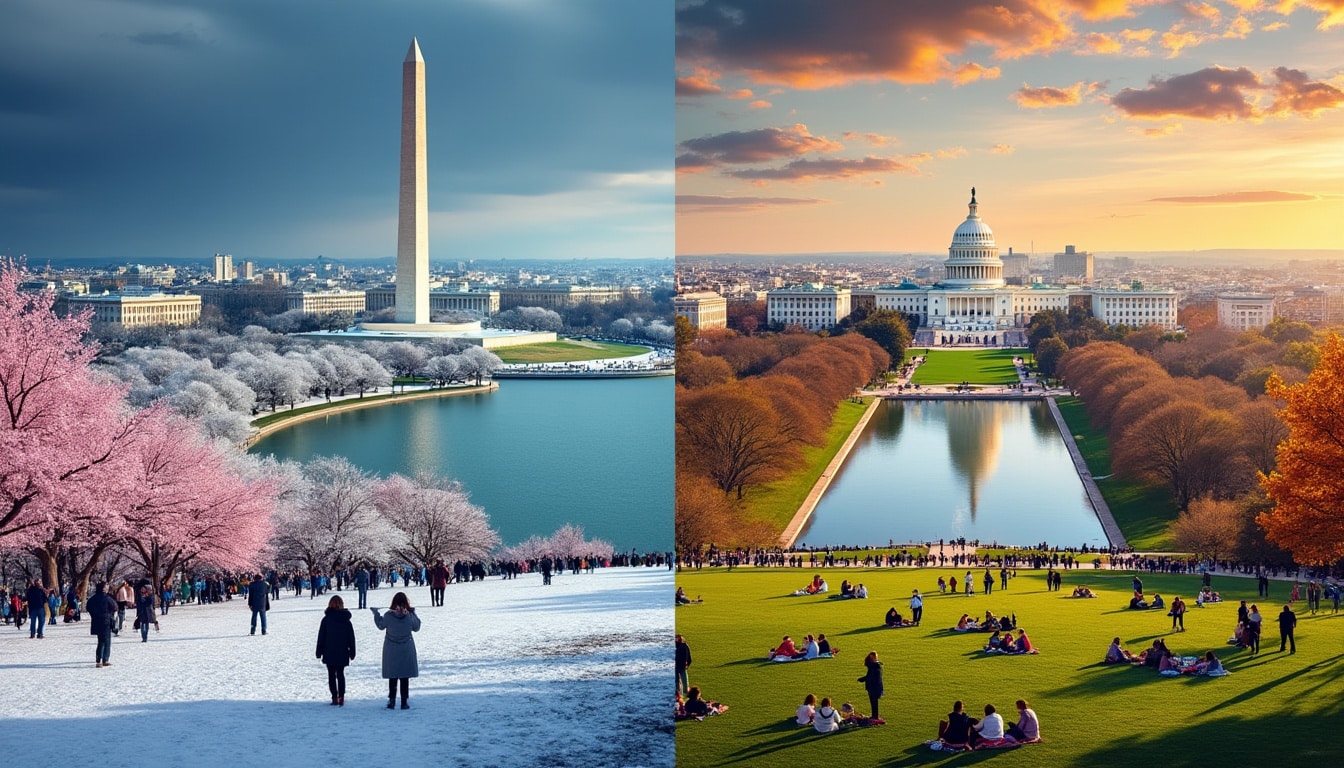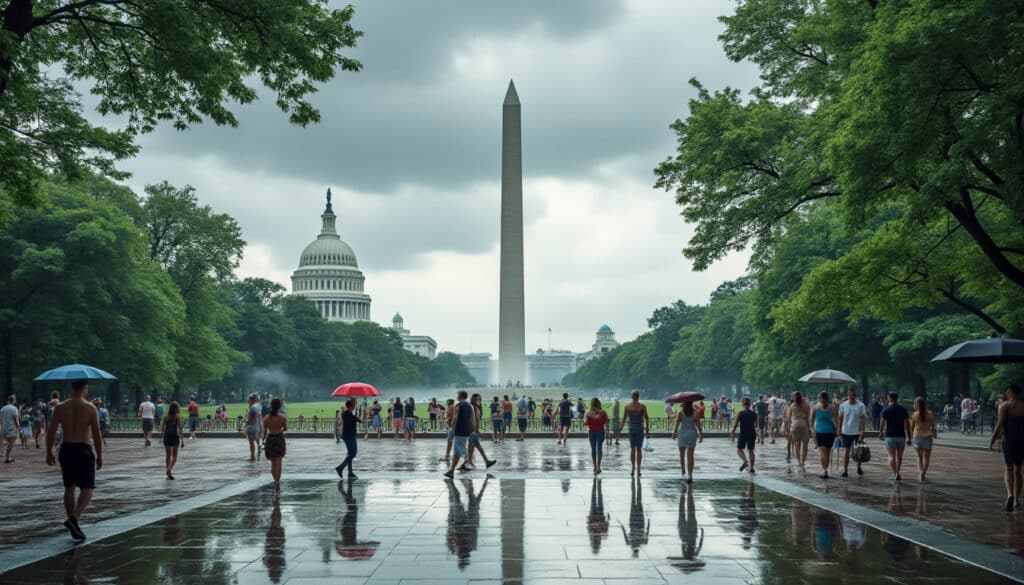The weather in Washington, DC, is characterized by its distinct four seasons, each bringing its unique flavor to the capital city. From the sweltering summer heat to the brisk winter chills, the climate in Washington, DC, offers a variety of experiences. In this article, we will delve deep into the nuances of temperatures in this iconic city, exploring seasonal patterns, daily fluctuations, and how weather influences daily life. Whether you’re a visitor planning a trip or a resident looking to understand more about your local climate, this guide aims to provide clear and informative insights.
Seasonal Temperature Fluctuations in Washington, DC
The climate in Washington, DC, is primarily classified as humid subtropical. This classification indicates hot, humid summers and cool to mild winters. Over the years, the seasons have brought diverse weather patterns, making the city’s climate both predictable and varied.
Summers in Washington, DC, can be quite intense, with temperatures often soaring above 90°F (32°C). The high humidity levels exacerbate the feeling of heat, making air conditioning crucial for comfort. Products from brands like The North Face and Columbia Sportswear are popular among residents and visitors alike for their breathable yet protective gear.
In contrast, the winter months can be surprisingly cold. While snowfall is not extremely heavy, it does occur, turning the city into a winter wonderland for short periods. The mercury often dips below 30°F (-1°C) during January, the coldest month. Ugg boots become a staple for many during these chilly months.
Spring and fall are particularly delightful. The infamous cherry blossoms bloom during March and April when temperatures range between 50°F to 70°F (10°C to 21°C), making outdoor events and festivals highly popular. The fall months, from September to November, witness cooling temperatures that can go down to 40°F (4°C) in November, often leading people to layer up with products from Arc’teryx and Patagonia.
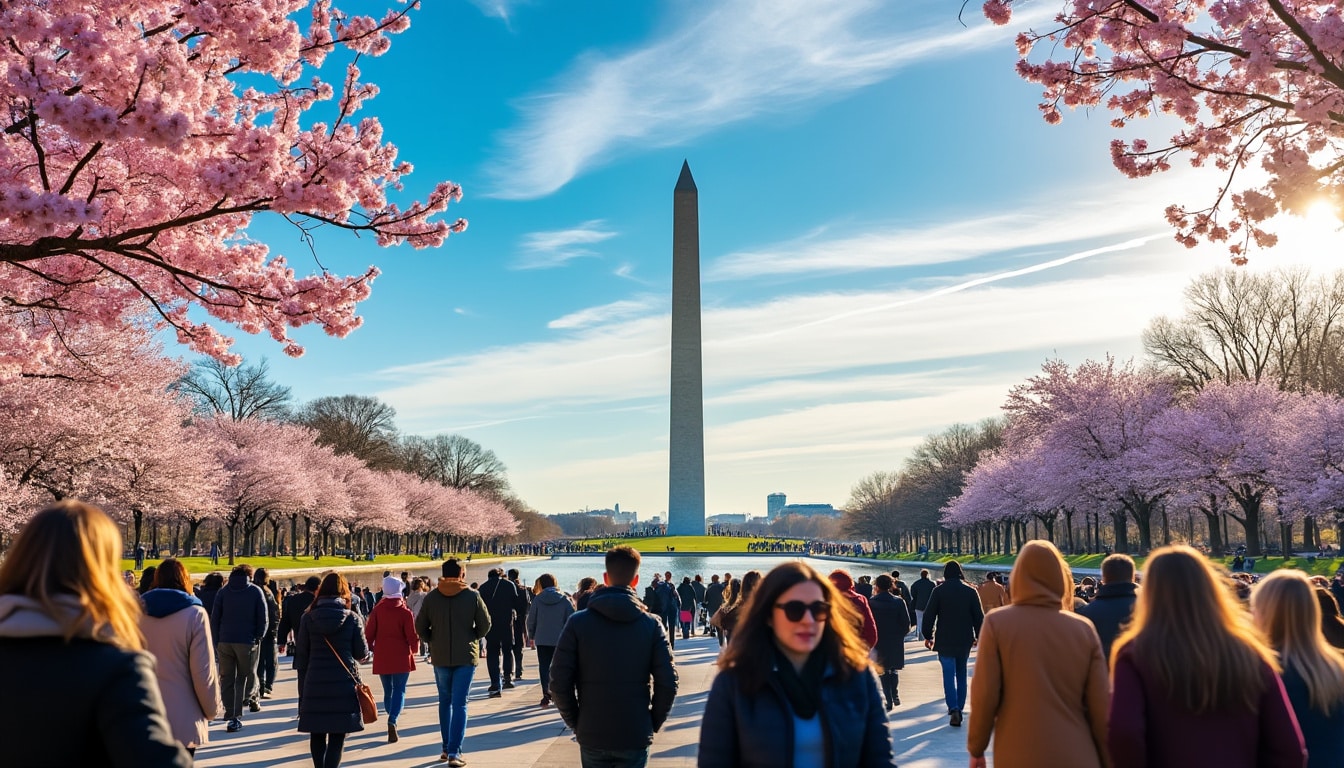
Looking at the data, each season offers its distinct experience, making Washington, DC, a city that never runs out of surprises with each change of season. For further insights into how each season affects the capital, consider visiting Seasons in Washington, DC.
Summertime: The Capital’s Hottest Months
June to August marks the peak of summer in Washington, DC. During this period, the city’s usually bustling streets can seem more languid due to the intense midday heat. One of the key activities remains visiting museums or enjoying shaded park areas. Be sure to wear lightweight clothing and perhaps enjoy a refreshing drink from establishments like Peet’s Coffee.
- 🌞 Average high: 89°F (32°C) in July
- 🌡️ Typical low: 69°F (21°C) in June
- ☁️ Humidity often averages around 60-70%
- 🌧 Chance of thunderstorms escalating in July
It’s essential to stay hydrated and consider lighter activities during this period. The availability of weather-specific gear is a common consideration for visitors. For those interested in more information about the hot weather patterns unique to the capital, visit Hot Weather in Washington, DC.
Winter Chill: Navigating Cold Temperatures in Washington, DC
The arrival of winter in Washington, DC, brings a crispness to the air. Typically starting from December and lasting until February, the winters here are cold, but not brutally so. The presence of gentle snowflakes enhances the historical charm of the capital, especially around areas such as the National Mall.
Snowfall is generally moderate, but it does create serene, picturesque streets perfect for photography enthusiasts and history buffs wandering the many outdoor memorials. Products from Marmot and L.L. Bean are favored for their warmth and durability during these months.
Here is a simplistic breakdown of typical winter conditions:
| Month | Avg High Temperature | Avg Low Temperature | Snowfall (inches) |
|---|---|---|---|
| December | 47°F (8°C) | 30°F (-1°C) | 2.3 |
| January | 43°F (6°C) | 28°F (-2°C) | 3.7 |
| February | 47°F (8°C) | 31°F (-1°C) | 3.8 |
For more comprehensive information on winter’s icy grip and tips on how to enjoy it safely, check out Cold Weather in Washington, DC.
How Snow Transforms the City
Snow in Washington, DC, varies year by year. While some years may see more significant accumulations, making it ideal for snowball fights and sledding, others might experience mild dustings that barely disrupt daily life. Schools and city activities usually plan accordingly, with schools occasionally closing during significant snowfalls.
Those who prefer staying indoors rush to cafes and cozy spots. Here, enjoying a warm beverage while watching the snow gently fall can be a quintessential DC winter experience. For further exploration of snowfall impact in DC, refer to Snow in Washington, DC.
Precipitation and Rainfall Patterns
Rainfall, though spread throughout the year, peaks during the spring months and tapers in fall. Spring rains often herald the arrival of the floral displays for which the city is famous. These rains, although frequent, are typically not torrential, helping to keep the city lush and vibrant.
Here’s a snapshot of monthly rainfall averages:
| Month | Average Rainfall (inches) | Days with Rain |
|---|---|---|
| March | 3.8 | 11 |
| April | 3.3 | 10 |
| May | 3.9 | 12 |
An umbrella or raincoat from trusted brands like REI or WeatherTech can come in handy, especially during April’s unpredictable weather. For detailed information about rainy weather, explore Rain and Precipitation in DC.
Spring Blooms and Showers
April showers bring May flowers, as the saying goes, and nowhere is this more evident than in Washington, DC. The capital’s cherry blossoms bring a significant influx of tourists. This vibrant display of pink and white flowers is a sight to behold, framed beautifully against the city’s historic landmarks.
Spring rains at times precede sunny spells, making this season quite dynamic. To learn more about Washington, DC’s weather year-round, click here: Year-Round Weather in Washington, DC.
Humidity: A Dominant Factor
Despite the varying temperatures across seasons, humidity remains a consistent element in Washington, DC’s climate. The city’s proximity to water bodies like the Potomac River contributes to this humidity, affecting the overall feel of the weather throughout the year.
While winter months may see lower humidity levels, summer often experiences humidity reaching up to 80%, magnifying the effect of high temperatures. This high humidity level requires adjustments in wardrobe choices, prompting residents to opt for lightweight and moisture-wicking garments, often from Marmot or similar brands, to stay comfortable.
Below is a summary of typical humidity levels:
| Season | Approximate Humidity |
|---|---|
| Spring | 55-75% |
| Summer | 65-80% |
| Fall | 60-70% |
| Winter | 45-65% |
Understanding humidity’s impact is vital for those living in or visiting the area. For a more comprehensive analysis, visit Humidity in Washington, DC.
As weather intricately links with how life unfolds in Washington, DC, knowing these aspects allows both residents and visitors to prepare better and enjoy what this city offers across seasons.
Tips for Managing Humidity
High humidity can often make hot days feel hotter. Here are a few tips:
- 💧 Stay Hydrated: Carry water when outdoors.
- 👕 Wear Breathable Clothing: Cotton and loose fits are ideal.
- 🌬️ Utilize Fans: Increase air circulation indoors.
Each of these tips provides practical ways to cope with high humidity. When considering travel or life choices in DC, remember that the city’s weather truly remains as diverse as its culture.
FAQ about Washington, DC’s Weather
Here are some commonly asked questions about the weather patterns in DC:
- Q: What is the best time of year to visit Washington, DC?
A: Spring (March to May) and fall (September to November) offer the best weather with mild temperatures and beautiful foliage. - Q: Does it snow a lot in Washington, DC?
A: Snowfall is moderate, typically occurring in January and February, with occasional storms bringing more accumulation. - Q: Is Washington, DC, very humid?
A: Yes, the city experiences high humidity during summer, which can make temperatures feel warmer. - Q: How should I dress for Washington, DC weather?
A: Dress according to the season—light clothing in summer, layer in fall and spring, and warm clothes in winter. - Q: Does it rain often in Washington, DC?
A: Rain is relatively consistent year-round, with increased occurrences during spring and late summer.

Climate & Weather in Washington DC
Washington D.C., the vibrant capital city of the United States, is known for its diverse weather patterns. From warm summers to chilly winters, the climate in Washington D.C. varies significantly throughout the year. Understanding the climate and weather patterns is…
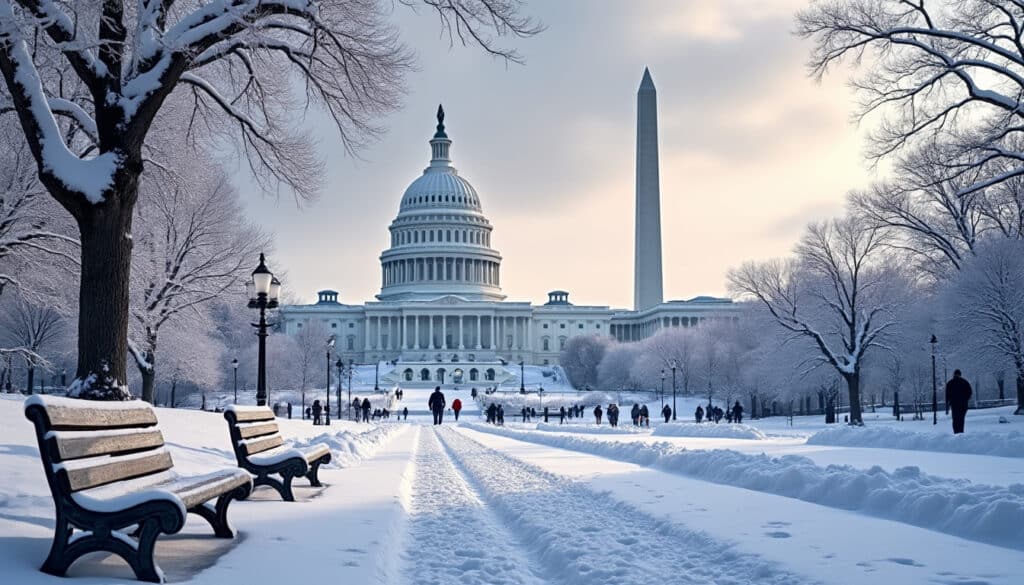
Washington D.C., the political heart of the United States, is no stranger to frigid winters. The capital city’s cold weather season brings a unique set of challenges and experiences, from bone-chilling winds that sweep across the Potomac to the enchanting…

Does it snow in Washington DC?
Washington D.C., the capital of the United States, is renowned for its historical landmarks and political significance. However, when winter arrives, one might wonder: does it snow in Washington D.C.? The answer is yes, and in fact, the city transforms…

Flooding and natural risks in Washington DC
Washington D.C., a city dotted with historical landmarks, bustling government buildings, and scenic waterways, finds itself at the intersection of natural beauty and vulnerability. As climate patterns evolve, the nation’s capital is increasingly facing challenges posed by flooding. From the…
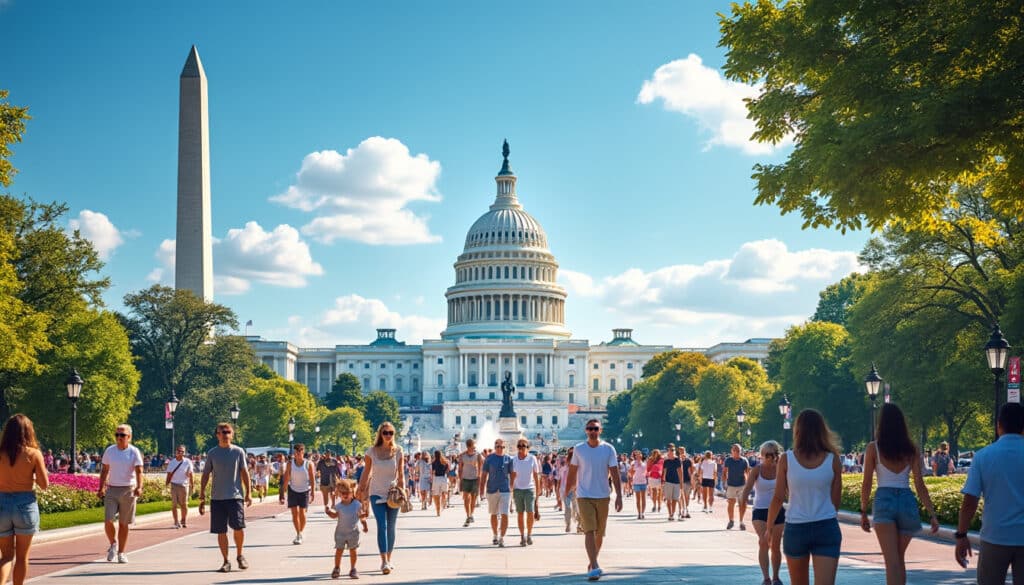
Washington, D.C., the nation’s capital, is no stranger to hot weather. As the mercury climbs, residents and visitors alike find themselves seeking ways to cope with the intense summer heat. The city is renowned for its historical landmarks and cultural…
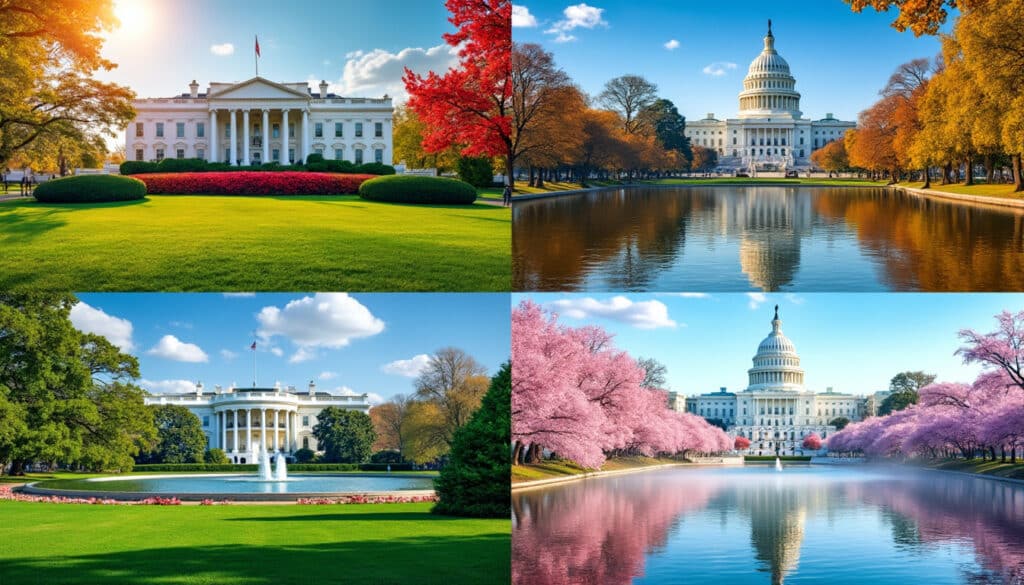
Is Washington DC warm throughout the year?
Washington, D.C., situated at the heart of the United States, is renowned not only for its historical monuments and political significance but also for its dynamic weather patterns. Although some may perceive it as consistently warm, the truth reveals a…
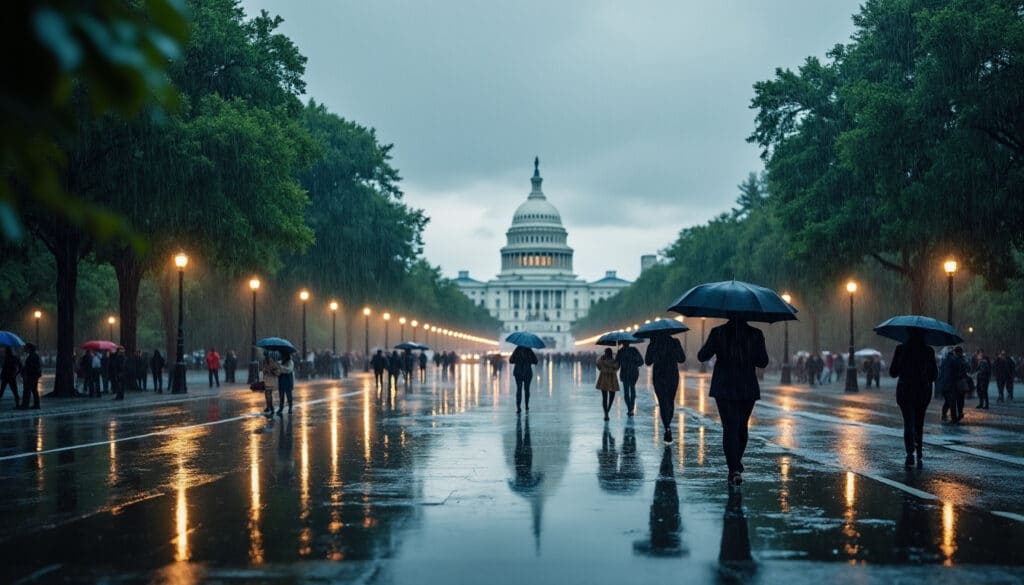
Rain and precipitation in Washington DC
Washington DC, the political heartbeat of the United States, is not only known for its rich history and iconic landmarks but also for its distinctive weather patterns, particularly rainfall and precipitation. This city experiences a wide range of weather conditions…

Sunrise times in Washington DC
Sunrises in Washington DC are a daily spectacle that can enrich the start of any day. Whether you are planning to explore the iconic landmarks or simply enjoy a peaceful moment in the capital city, knowing the exact times can…
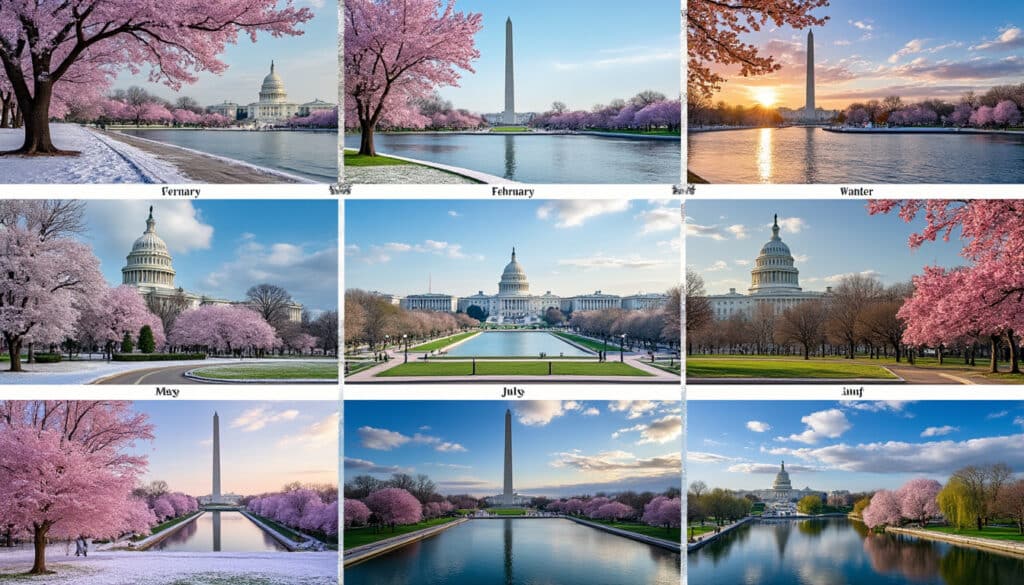
Weather in Washington DC by month
Understanding the weather patterns in Washington, D.C. is essential for both residents and visitors planning their trips to the capital city. With its distinct seasons, varying temperatures, and fluctuating weather conditions, Washington, D.C.’s climate offers a unique experience every month.…
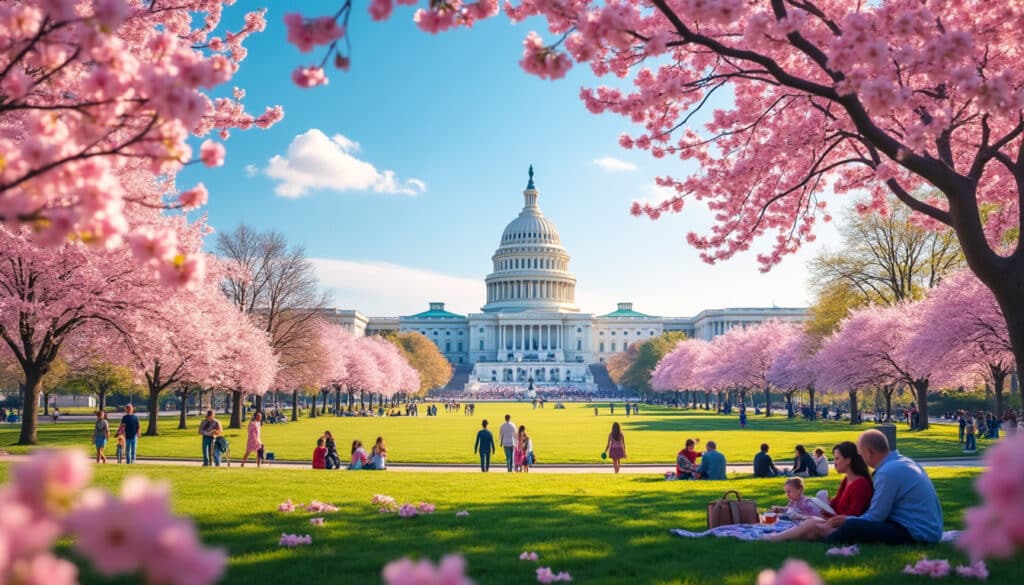
What is the weather like in Washington DC?
Washington, DC, the capital city of the United States, is known for its rich history and iconic landmarks. But what about its weather? The climate in Washington, DC fluctuates significantly across the year, offering a mix of seasons that can…

